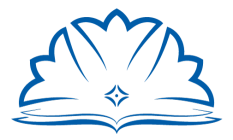Viimati muudetud: 15.01.2025
- In 1985 the school started work as an establishment for secondary education under the name Tartu 16th Secondary School.
- In 1997 the school was named Tartu Kivilinna Gymnasium. During the years 2004 – 2014, the school operated in two buildings: in the first were students from grade 1– 7 and in the second, from grade 8 – 9 and secondary school.
- Since August 1st, 2014 we have been functioning as a school giving primary education. The learning establishment is named Tartu Kivilinna School and operates in one building, where students from grades 1-9 learn together.
- The number of students in the school is approximately 800 and there are 60 teachers.
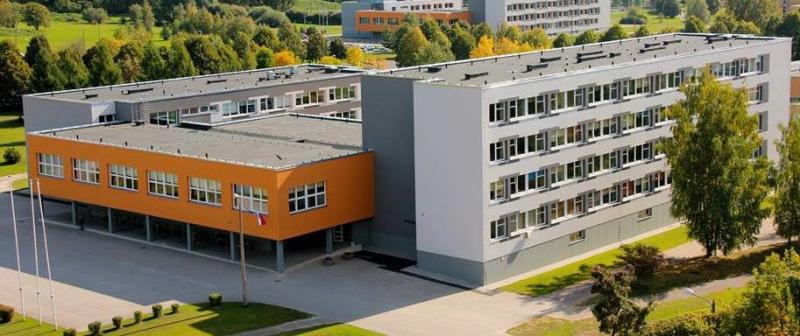
In Tartu Kivilinna School students are taught on the basis of the national curriculum, there are five study periods (study periods are separated by holidays).
Admission into the school takes place through the Management System of Tartu Educational Services ARNO: https://www.tartu.ee/arno/
Daily shedule
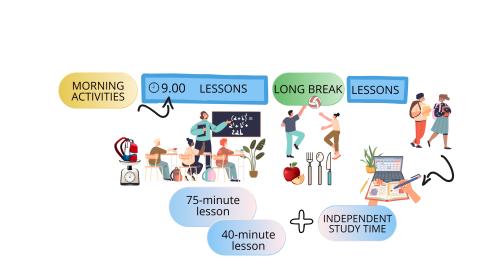
Timetable
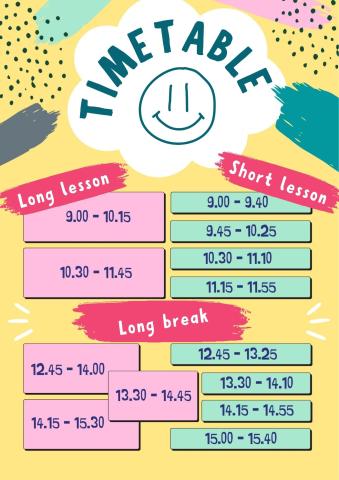
Evaluation
Summary evaluation takes place twice in a school year. After the second study period, students receive feedback on the first half-year and after the fifth study period they receive the summary evaluation of the second half-year.
- In grades 1-3 students are given feedback on their knowledge and skills in all subjects using oral and written verbal assessments, which describe the students' knowledge and skills in the various subjects, instead of grades.
- In grades 4-9 both differentiated assessment and non-differentiated assessment in some subjects such as P.E., music, art, handicraft and home economics, technology, social studies, informatics and civics and citizenship education (only in grade 5), are being used.
In the case of differentiated assessment, the following six-step scale is used:
A (excellent)/ A+ (outstanding)
B (very good)
C (good)
D (satisfactory)
E (sufficient)
F (insufficient)
In the case of non-differentiated assessment, the following two-step scale is used:
AR (pass)/AR+ (pass with credit)
MA (fail)
The face of our school
- English is taught from grade 1. From grade 3, students start learning a second foreign language, either Russian, German or Finnish. Those who wish to, have a chance to start learning a third foreign language, which is carried out as a paid non-curriculum activity, in grade 6. As a third foreign language, the students may choose Finnish, French, or even German or Russian if interested.
- Within P.E. lessons in grades 1, 4 and 5, dance lessons, where students learn the basics for stage, folk and social dance, are held for all children.
- Students in grades 1 and 2 have extended days in their daily routine, where the basis is laid for basic learning skills and habits.
- To develop the students` digital competence, informatics classes are held in grades 4, 6 and 8. In all other grades, this is integrated into other subjects. To increase the efficiency of the students` and teachers` development of digital competence, a digital focus project has been started. The use of various digital tools and tasks are a natural part of the learning process. For this, the school has three computer classes and mobile solutions: a classroom`s worth of tablet computers and two classes worth of laptops. There is a school-wide Wi-Fi network, which allows the students to also use their own smart devices in learning (the BYOD-method).
- Kivilinna school belongs to the frameworks of Health promoting schools and Schools inviting to move. A health promoting mindset and students getting to actively move both inside and outside the school during the school day is important to us. Teachers also use as many movement encouraging activities as possible during the lessons as well.
- Singing and learning to play instruments are also important parts of our school. There are different choir types, smaller musical groups and a wind band group. The purpose of singing in choirs and learning instruments is to promote musical culture and to get to know different musical traditions. Musical activity develops children`s creativity and shapes correct values.
- It is important to us to include parents into the every-day life of the school. The school`s board of trustees gathers regularly. A Parents` Forum is held once a year (consisting of 1-2 elected parent representatives per class), where relevant topics important to the school are discussed. Parents are also included in the learning process, for example those who wish to, have the chance to introduce their job or hobby on career day or to supervise a creative project etc. There are also several extracurricular events held in Kivilinna School, which parents are welcome to participate in as well as carry out.
- Other groups also play an important role in the development of the school – there is an active student board and the students hold an annual Children`s Forum, where they can have a say on important topics regarding school life.
- The school has developed good collaboration partners: the University of Tartu (we are an innovation school supporting the development of the teacher study program), Tartu Environmental Education Centre, State Forest Management Centre, the museums and other research institutions in Tartu (AHHAA Science Centre); in addition to that, as an open school, we collaborate well with other schools as well, for example Tartu Annelinna Gymnasium or our long-standing foreign sister school in Ikaalinen, Finland.
We have…
- Gym
- Assembly hall
- Swimming pool
- Library
- Computer classrooms
- Chemistry lab
- Technology/Robotics lab
- Modern woodwork classrooms
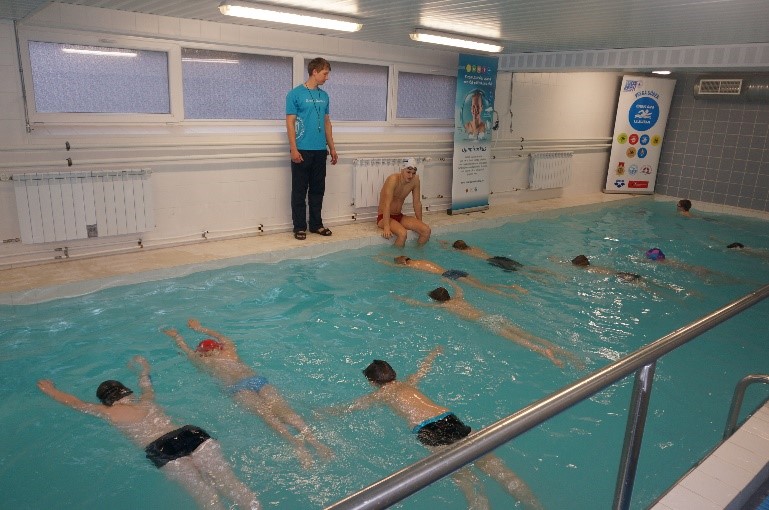
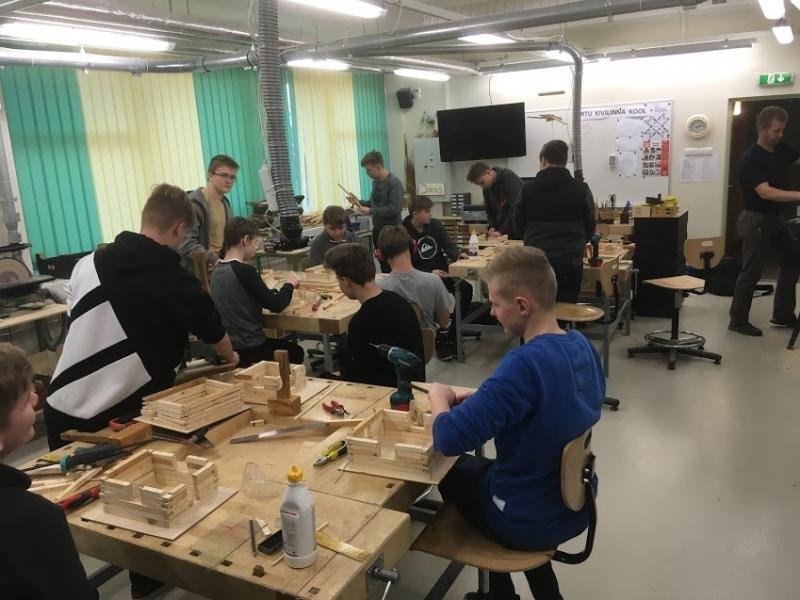
Hobby clubs
- Robotics
- Choirs
- Science club
- Drama club
- Woodwork
- Media club
- Math club
- Communication
- Sewing
- Folk dance
- etc …
School Symbols
The core values of Tartu Kivilinna School are represented in the Eight-pointed Star of Values:
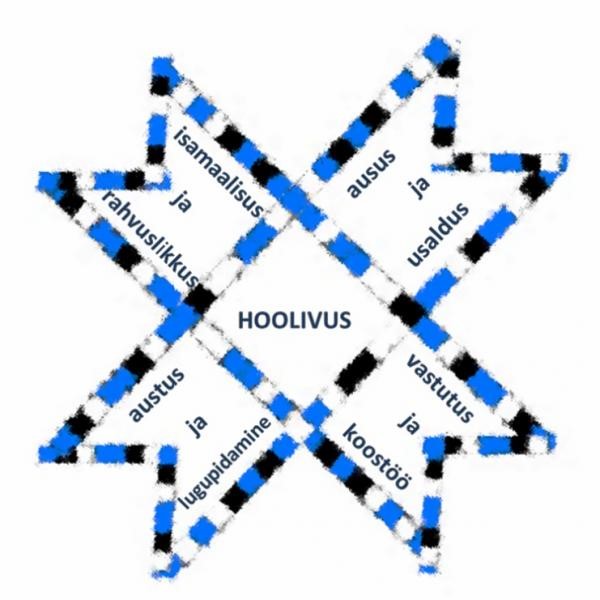
The eight-pointed star, which is also known among the Estonian national symbols as a lucky star, has been picked to represent the values of Kivilinna School. The star symbolises a progressive force headed into the future. The commonplace base value of caring is in the centre of the eight-pointed star. There are other values very important to us and developed at our school on every level brought out on the beams, such as honesty and trust, respect and appreciation, responsibility and cooperation, patriotism and valuing our nationality.
The school logo
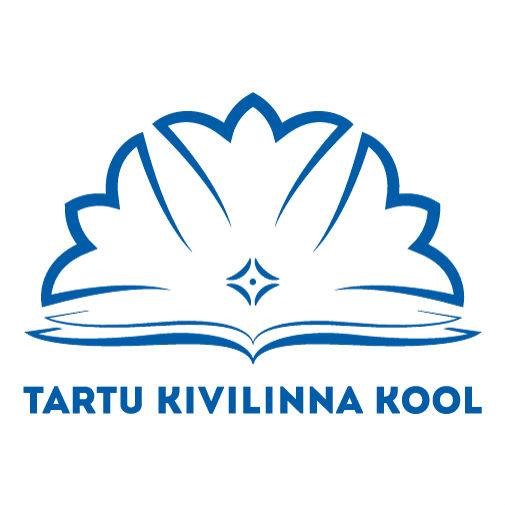
The elements of the school logo represent its values.
- The contour of the three-leaved cornflower represents nationality and patriotism.
- The four arcs and the dot in the middle of it in the centre of the logo represent caring.
- There is a book depicted in the bottom of the logo, which is a symbol of wisdom and education.
The school tie, scarf, student hat and student ring:
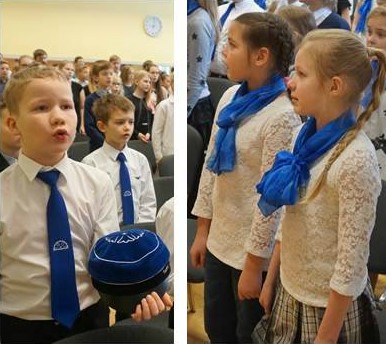
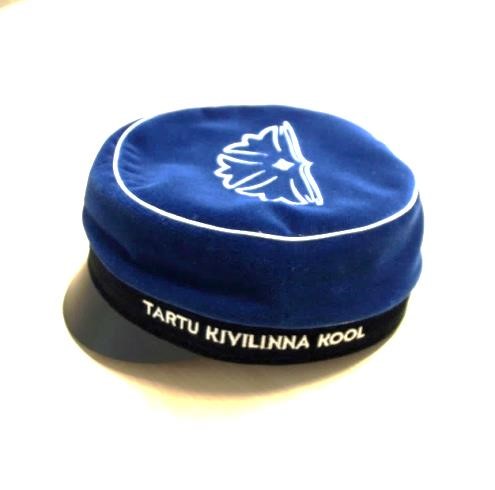
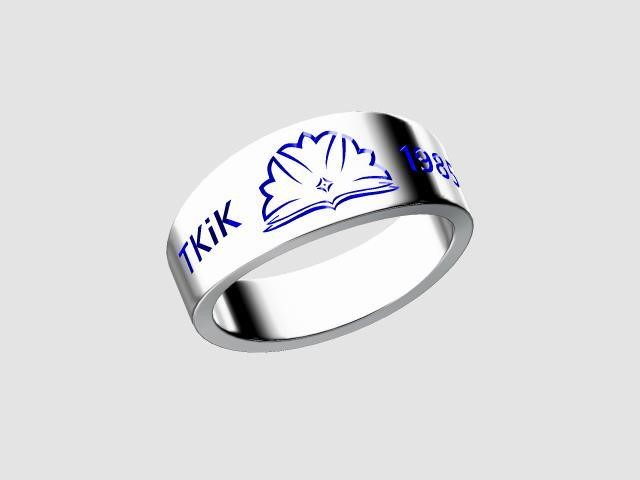
Overview of Tartu Kivilinna School
